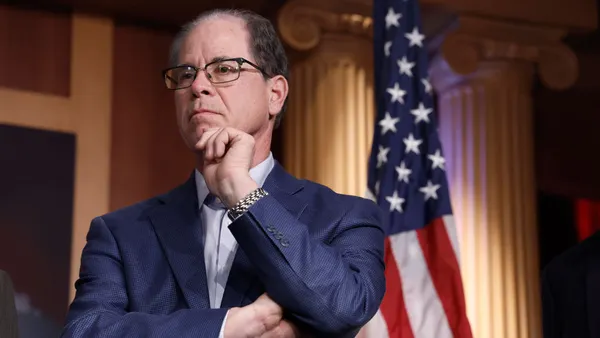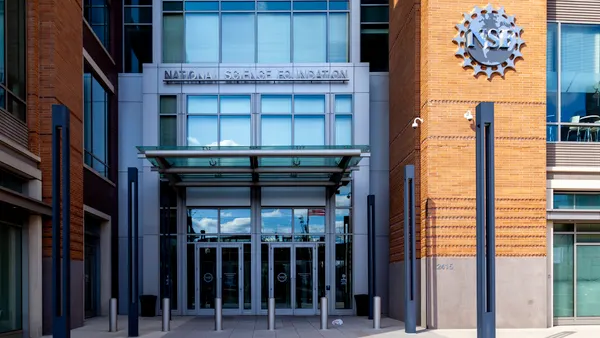Dive Brief:
- Accreditors for higher educational institutions have worked as self-regulators for colleges and universities while helping to serve as government’s proxy to determining federal funding access, but increased pressure on schools to deliver innovative programs puts pressure on accreditors to not stymie such innovation.
- Richard Legon, the president of the Association of Governing Boards of Universities and Colleges, writes in an op-ed for the Council for Higher Education Accreditation that accreditors must not fall victim to feeling a “false choice” must be made between “rigorous review and healthy innovation.”
- Legon stresses that in a particularly frenetic and changing environment for higher educational institutions, accreditors must work to ensure that they are performing the right kind of review on the right attributes.
Dive Insight:
There is a growing conversation around the role of accreditors and whether campus leaders have complete freedom to, for instance, unbundle degrees and revamp pathways to completion under the current structure. While certain disciplines, like law or medicine, require a strong uniform base of knowledge, other liberal arts degrees are somewhat more amorphous.
Accreditation continues to take criticism from various ideological corners, with the Heritage Foundation arguing that it would be preferable to let states and industries have a greater role in accrediting individual classes, while the Center for American Progress is requesting that there be an adoption of new accreditation standards set by a third party that would be selected by the government. The diversity of criticism suggests there is a widespread questioning of accreditation’s role and success rate, which is further illustrated by the recent decision of several prominent journalism schools to drop their accreditors.











